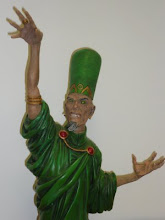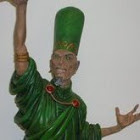
The astonishing story of one of the most important contributors to the first edition of the Oxford English Dictionary is gripping and constantly surprising. The Oxford English Dictionary was a stereotypical Victorian project, it was intended to project the power and majesty of English, the language of Empire. More than simply providing a source of explanation, it was intended to be a biography of the language, capturing the current as well as deceased aspects of the language with a confident sweep and authority. The structure of the dictionary would include both a definition of the word as well as quotations that tried to show how the word had entered the language, shifted in meaning and possible passed out of usage. It was an extraordinary project, one that breathes the steely assurance of the English Victorians.
Simon Winchester traces the general development of dictionaries as well as the extraordinary development of the OED itself. In particular he examines the lives of two men, James Murray who was the most important editor of the first edition of the OED and Dr. William Minor who would become one of the most important contributors. James Murry, the son of a Scottish farmer, rose due to his intellectual force and determination to being appointed as the editor of the OED. He proved to be exactly the right person for the job, combining a range of organisational skill, willpower and lively, deeply informed curiosity needed to push the process forward.
William Minor was a convicted murderer who was confined to Broadmoor, a hospital for the criminally insane. Minor was an American, a doctor in the Union Army who had been at the front line of the horrifying battle of the Wilderness. From Broadmoor he contributed an invaluable series of quotations for the dictionary and was recognised for his contributions in the introduction to the first volume.
Simon Winchester tells the intertwined story of the OED, James Murray and Dr. Minor with skill and care. It is a riveting story. What lifts the book to unexpected heights is that George Merrett, the man Dr. Minor murdered, is not lost in the shadows of the story. He is recognised as being more than a a footnote to a larger narrative and this honest remembrance gives the book an unexpected depth.


No comments:
Post a Comment